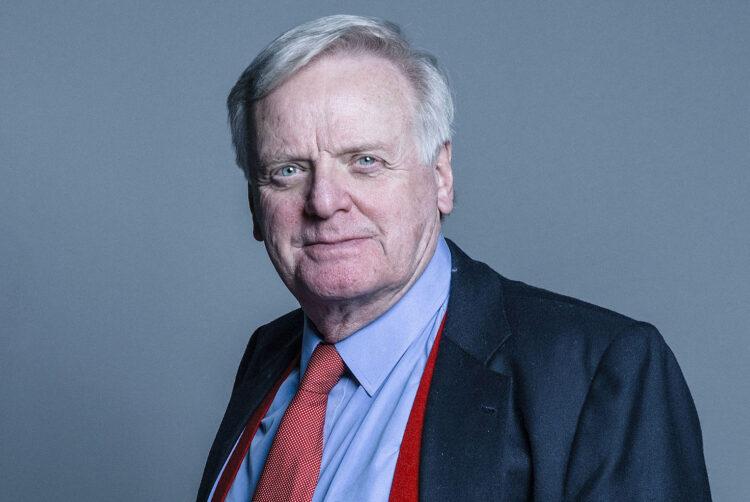Ofcom should carefully weigh Lord Grade’s baggage

Lord Michael Grade is reportedly in the frame for the top job at Ofcom, following the Dacre debacle. But why would he want the job, especially now?
It appears that Michael Grade has morphed into the UK broadcasting equivalent of Alan Bleasdale’s Yosser Hughes (The Boys from the Blackstuff) – forever on the lookout for a possible gig.
As Lord Grade will be 79 next month, many will be wondering why His Lordship isn’t just relaxing into a well-earned retirement.
But as his uncle Lord Lew Grade (1906-98) was active into his 90s, maybe it should not come as that much of a surprise.
The job of heading media regulator Ofcom appears rather dull when compared to Grade’s other roles throughout his extensive career in the entertainment industry.
With Daily Mail boss Paul Dacre no longer in the running for the post, the government were presumably forced to cast around for a UK media figure of similar renown with conservative sympathies (Grade ‘came out’ as a member of the Tory party in May 2010).
Like Dacre, Grade is famously outspoken – increasingly so over recent years. His apparent interest in being part of an effort to acquire Channel 4 in the advent of privatisation and latest jeremiad regarding BBC funding could be seen as incompatible with chairing Ofcom.
But, after the threat of Dacre, the government likely assume that Lord Grade will be welcomed as a less controversial choice, even with this baggage.
Collecting enemies
Grade’s career has had its ups and downs.
In 1968 he successfully engineered Morecambe & Wise decamping to the BBC when he was their agent (against the wishes of Uncle Lew, who wanted to keep the duo at ATV) and boosted ratings during his tenure as BBC1 controller in the 1980s.
When Grade took over from Jeremy Isaacs as CEO of Channel 4, his predecessor famously threatened to “throttle” him if he took the broadcaster downmarket, proclaiming “I am handing on to you a sacred trust”.
Prophetically, Isaacs accused Grade of preparing Channel 4 for privatisation.
Despite taking the broadcaster in a more commercial direction, Grade remained unthrottled. Audience numbers improved under the new CEO, but it could be argued that the Pandora’s Box of a future sale was opened by the increasingly ratings-driven approach.
Along with earning the ire of Isaacs, Grade has amassed a fair number of other feuds in the course of his many years in broadcasting, (including some former colleagues/friends) with John Birt, Greg Dyke, Chris Morris, and Dawn Airey among his sometime adversaries.
As Oscar Wilde once said: “You can always judge a man by the quality of his enemies.”
With the exception of Chris Morris, none too flattering for Michael Grade.
‘Tactical mistakes’ at ITV
After leaving Channel 4 In 1997, Lord Grade pursued commercial and other interests (including the Millennium Dome, First Leisure Corporation, Camelot, and Pinewood Studios) until he returned to Auntie in 2004, this time as Chairman.
Notoriously (to some) Grade resigned suddenly from the BBC in 2006 to become executive chairman of the then ailing ITV.
According to The Daily Telegraph’s Jeff Randall, BBC staff were “incandescent with rage at Michael Grade’s defection”.
Although greeted by more credulous members of the media commentariat and internal ITV boosters as the ‘saviour’ of the broadcaster, Grade proved to be a disappointment, and was effectively sidelined after failing to turn the network’s commercial fortunes swiftly around.
Akin to Die Hard’s unfortunate Harry Ellis (Hart Bochner), the claims of Grade’s supporters that he was ITV’s ‘white knight’ proved sadly illusory.
Under Lord Grade’s reign, ITV’s share price plummeted to just 22p (from 148p in 2004), ad revenue declined by 20%, profits by 41%, whilst jobs and production budgets were slashed.
Greg Dyke rubbed salt in the wound by saying: “ITV have made some crucial tactical mistakes. They bought two big lots of football rights when the rates were still very high, which they now can’t afford. That was Michael Grade’s mistake: he nicked the FA Cup off the BBC and now he can’t afford to pay for it.
“It’s not the first time he’s done that, either. How much responsibility he takes for this is up to the shareholders, but my guess is that they’ll be asking questions of the management – after all, they’ve followed a strategy which has turned out to be completely the wrong one.”
But to his credit, the executive chairman cleared out senior management previously responsible for a slew of ill-considered strategy and programming decisions (including flop dramas Rock Rivals, Harley Street, The Palace, Britannia High, Demons, Moving Wallpaper/Echo Beach, poaching Trinny & Susannah etc).
But he was too too late (and too partial) to give ITV the strong recovery that the following Archie Norman/Peter Fincham regime achieved.
If Lord Grade returns to the fray as Ofcom chairman, will it cap a storied career in broadcasting – or usher in a period of yet more turmoil for an already buffeted industry?
Stephen Arnell began his career at the BBC, moving to ITV where he launched and managed digital channels. He continues to consult for streamers and broadcasters on editorial strategy. He currently writes for a variety of publications (including The Spectator, Independent, Guardian, Broadcast etc) on film, TV and cultural issues. He is also a writer/producer (including Bob Fosse: It’s Showtime for Sky Arts) and has just completed his first novel.
NOW READ: Editor’s comment – Channel 4 may be just a ‘corner shop’, but it’s our corner shop
Media Leaders: Mediatel News’ weekly bulletin with thought leadership and analysis by the industry’s best writers and analysts.
Sign up for free to ensure you stay up to date every Wednesday.




